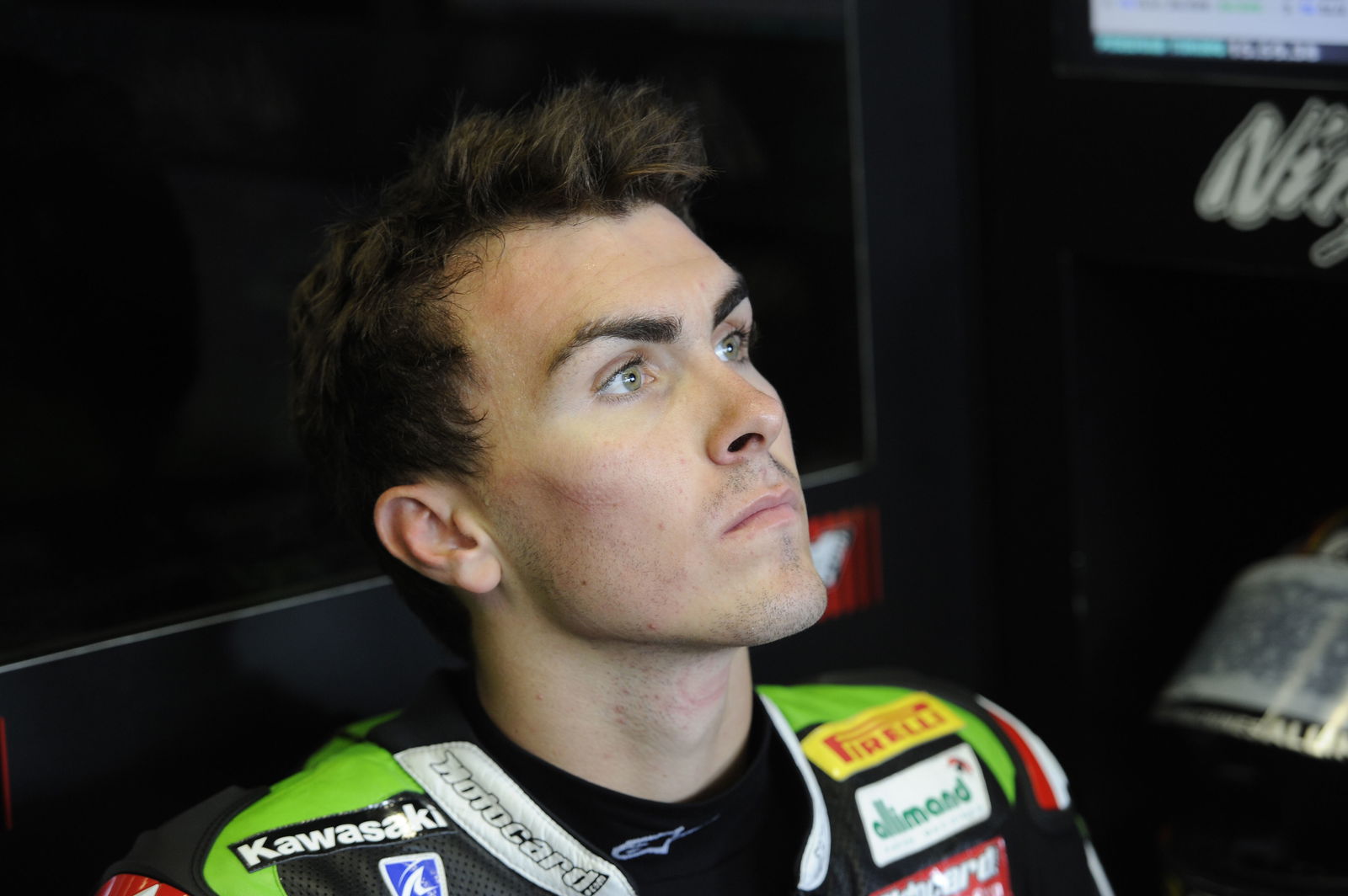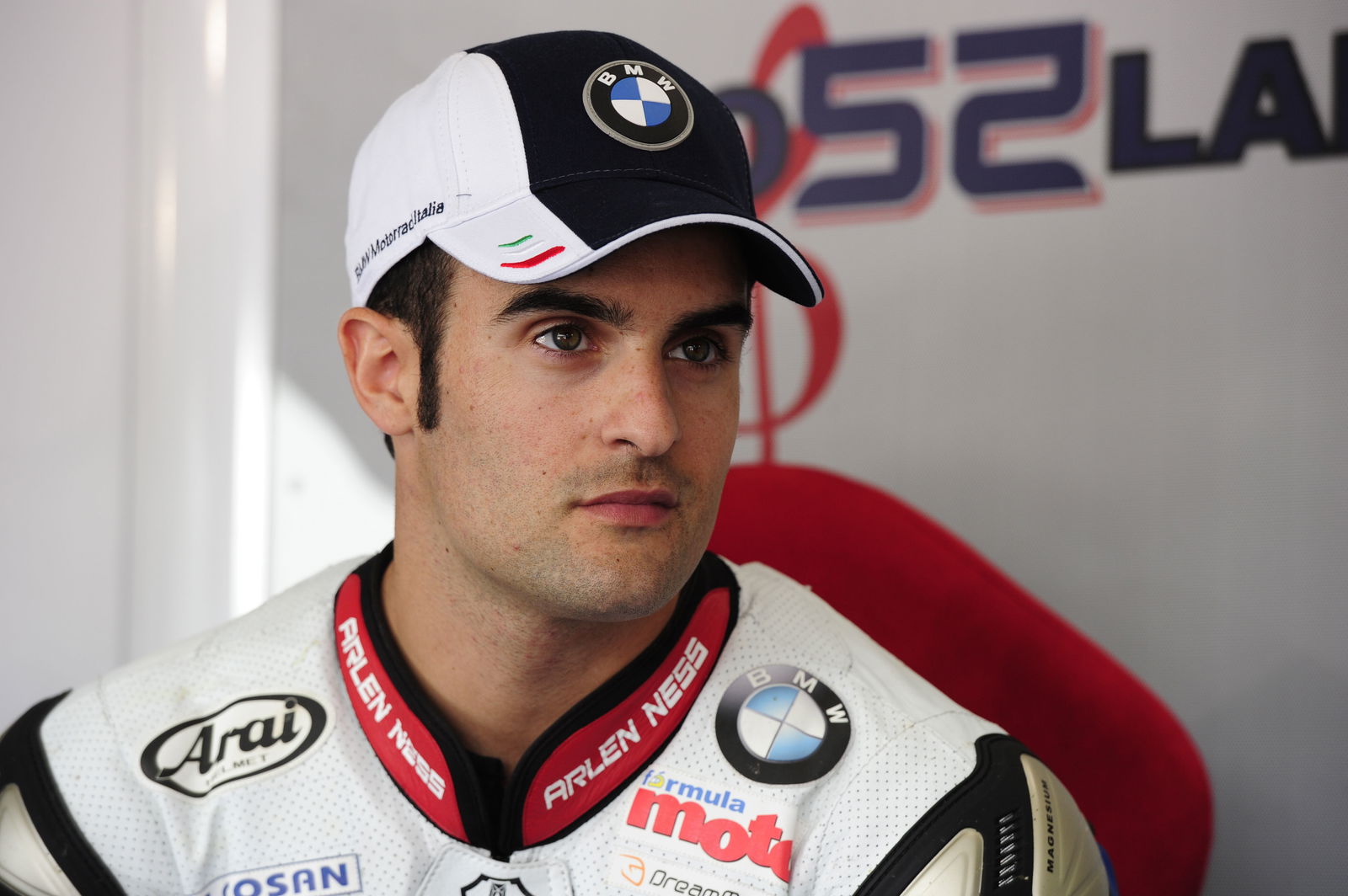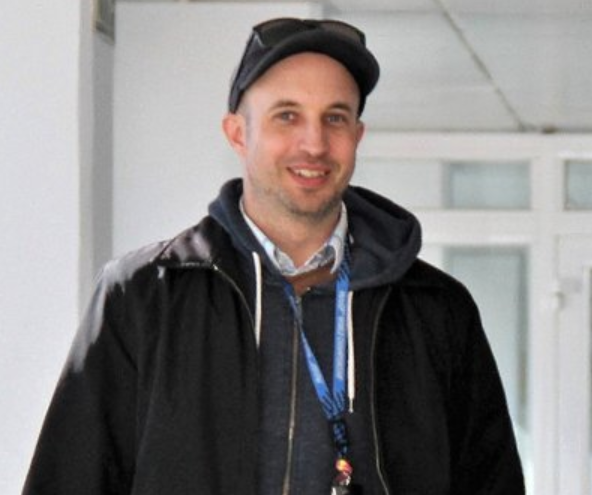Wilko Kleine - Q&A (Jonathan Rea's race engineer)

By Christian Tiburtius
An interview with Wilko Kleine, race engineer for Jonathan Rea at the Pata Honda World Superbike team...
Crash.net:
What's the motivation for doing your job?
Wilko Kleine:
I've loved racing for a long time. I was actually a track marshall at Assen, I was the guy wearing orange and waving the flags and I did that for eight years. I like all racing; FI, MotoGP, Superbikes, I love them all. When I stop working in racing I'll definitely go back to marshalling again, it's great fun.
I used to go to FI races, A1 GP, World Touring Car Championships and went to many MotoGP races, I did them all.
I used to own a motorbike too but I had to sell it to buy a house. It was a Honda but I had it before working at Ten Kate.
Crash.net:
How did you start working for Ten Kate?
Wilko Kleine:
I was originally a car mechanic and did that for seven years and saw an advert for a job in the normal road bike garage at Ten Kate and got that job.
I worked in their street bike workshop for four years, doing normal jobs and maintenance. I'm qualified as a car mechanic and also have a diploma in mechanical engineering. I don't think there are any specific qualifications for a race engineer; I think that for a race mechanic hands on experience is more important than having qualifications.
My bosses obviously know that I'm heavily into racing so two years ago one of the race mechanics got sick and they asked me if I wanted to go to Imola to work as a race mechanic there. I was naturally very excited, I only knew racing from the television or marshalling so it was great to be on the other side of racing. I took that opportunity with both hands and was assigned to Rubens Xaus.
Crash.net:
...and he's a man who keeps mechanics busy...
Wilko Kleine:
(laughs) Yes he is actually.
I went to Imola and also Magny-Cours but at Magny-Cours he crashed on the second lap on Friday and couldn't ride any more so that was an easy weekend for us!
Ronald [ten Kate] and I were both happy with how things had turned out so last year when another guy wasn't well I was asked if I wanted to work with Broc Parkes in Supersport. I didn't go to Australia but I worked from the second race 'til Moscow last year.
This year I've got a full time role working as Jonathan Rea's mechanic but because he's injured I'm currently working for Fabrizio.
Crash.net:
How specialised are the mechanics?
Wilko Kleine:
We're not really specialised. There are two mechanics for each bike and during a session I might do the fuel and the other mechanic might do the chain - small things but when there's a larger job we both do it.
I can do any mechanical job on the bike.
Crash.net:
Do you think that mechanics get the credit they deserve?
Wilko Kleine:
Well, we have long days so maybe not all the credit we deserve. But we don't really have time to do interviews and I'm not really sure if people want to hear our story. It's mainly the riders that people want to hear about.
Crash.net:
Do you get time to enjoy the racing?
Wilko Kleine:
Now I do so much during the race like holding out the pit board and so forth that I don't really have time to appreciate the action. With the races I normally tape them and watch them at home if I know it was an exciting one. If we crash out I don't watch them though.
Crash.net:
What kind of working hours do you have?
Wilko Kleine:
Normally we start at 8.30 or 9am and if there's nothing exceptional then you may stop at about 7pm. If something needs doing though then you have to work longer; 10pm, 11pm, 12am, - whatever it takes.
Thank God all-nighters don't happen so often but sometimes you've got to do them. The bike has to be ready for the next day, there can't be any excuses. Working 'til 10pm is pretty normal.
The longest I've worked is probably to about 3am rebuilding a bike for Aoyama last year. It was at a test at Assen and at 6pm he crashed and totally destroyed the bike.
Sunday is normally very busy between race one and two. You do the warm up and have to check the clutch because of any practice starts which have been done. The clutch is a vital component that we check often. It's crucial for starts but isn't really used during the race. You have to wear gloves for any work you do on the engine because it's so hot.
Crash.net:
When there's a crash do you feel for the bike or the rider first?
Wilko Kleine:
Of course it's important that the rider's OK, you can fix the bike even if it takes 'til 3am. When you look at Johnny right now unfortunately he's taking a lot longer to fix!
You're always hoping that the damage isn't too bad so you won't be up too late, but the rider comes first.
Crash.net:
Do you feel that Ten Kate is a special place to work?
Wilko Kleine:
When other teams go to hotels we all stay at the race track.
If you're staying in a hotel you go back and close the door but we usually stay in the trailers and it means it's more social. During the evening if we're working late we usually have a good laugh together, the atmosphere is pretty good.
In a long day I usually see me colleagues more than I see my girlfriend or daughter so you have to have a good relationship.
Crash.net:
Do you socialise mainly with other mechanics?
Wilko Kleine:
Not really, sometimes you speak with other mechanics but only at a superficial level, we don't go into the technical stuff. We keep ourselves to ourselves, though sometimes after a race you may look at other bikes to see how they do things. I mainly socialise within the team.
Crash.net:
How is your relationship with the rider?
Wilko Kleine:
At a certain level you do make jokes and you do have a laugh at the racetrack but it's not as if you go round for coffee or anything. It's a more professional relationship.
At the moment I'm working on Fabrizio's bike but I would have to say that there really isn't any difference in what I do with his bike and Johnny's.
Crash.net:
What would you prefer a fast rider who crashes a lot or a steady one who brings the bike home?
Wilko Kleine:
Brings it home in P10? Then I'd rather take the fast rider, I want to go for the wins and the championship. If you've got a rider who crashes a lot though you're always on the edge. A rider who doesn't crash can either be that good or maybe they're not really trying.
You don't really care how much work you have to do, you just want to win, that's why we do it. If you ask anybody in the paddock, mechanics, principals, mechanics, we all want to be world champion. It's the team.
I think the mechanics maybe feel the same as the rider when we get a win, we put in a lot of hours and then you get something back. It's such a good feeling when you win.
Crash.net:
If I destroy a bike completely, can you get another bike together for me to use?
Wilko Kleine:
Yeah, we'd have to work full throttle but yeah we'd have to, we can't afford to lose the race in that way. When Johnny crashed in race one at Nurburgring we knew the bike was pretty destroyed from the television pictures, so we'd already got lots of parts out of the trailer ready for when he came in based on what we'd seen broken. We needed to see the bike before we knew whether we'd need a spare frame and so forth though.
Crash.net:
So when you see the crash on television you're already preparing spare parts according to the damage you've seen done?
Wilko Kleine:
Yeah, we try to be ready and get everything into the pit box as soon as possible. It's only when the bike rolls in that we can fully assess the situation and get on with it.
Crash.net:
Do you carry enough spare parts to construct a complete bike?
Wilko Kleine:
Yeah for sure, we've got enough spare parts to construct a few bikes. Some major components like throttle bodies we don't have that many of but most parts we've got quite a few.
To build a complete bike might take us about 1.5 to 2 hours, but that would be with a number of mechanics pitching in, so if Leon hadn't had a crash then his mechanics might also help. It's at times like that that you really become one team.
Crash.net:
How about major problems with the engine?
Wilko Kleine:
If we have a problem with an important part in the engine such as the crankshaft then we'd just change the whole engine and that would take just over half an hour.
This year is pretty easy because we don't have the engine rule yet and we can just change the whole motor and we can use as many as we like. If we had a limited number of engines it would be more difficult and we'd have to look at the problem and see if it could be fixed.
Crash.net:
So the one bike isn't really reducing costs because you basically have others in the form of spares?
Wilko Kleine:
Yeah. We have them in parts but it just takes a lot more time to put them together and we often have to rush to put them together again.
I don't really think that the rule reduces costs and could actually make things a bit more dangerous because we have to rush the construction and we're all humans and mistakes can be made. There are so many bolts on a bike and if a single one is missed it can be dangerous in a race context.
Crash.net:
Do all teams in WSBK have the level of spares back up sufficient to build whole bikes?
Wilko Kleine:
Yeah, I know it for sure. You have all the major components like the frame, swingarm and wiring loom and to basically construct a bike you just attach the swingarm to the frame, lay over the wiring loom and put in the engine.
Before the one bike rule you had enough time to really know that the spare bike was ready and it was a lot easier.
Crash.net:
Do you think the current bike complexity is good for racing?
Wilko Kleine:
I think it makes it fascinating. We're in a world championship and not doing it at a hobby level so it has to be complex. I feel that it makes it interesting at a technical level.
I think the Dorna rules are intended to make WSBK bikes slower than MotoGP bikes but when you look at a Superstock bike it's not that much slower than a Superbike - just a few seconds.
I feel the complexity and electronics and so forth make it interesting. The technical level gives challenge. Maybe we could lose a bit of the traction control and launch control to get back the amazing slides, but we don't want a monkey to be able to race the bike!
Crash.net:
Are you permanently employed by Ten Kate?
Wilko Kleine:
I'm on a permanent contract from Ten Kate from my time working in the normal workshop, there are some new guys who are employed on a year's contract though. Race mechanics get a little bit more than the workshop mechanics but I wouldn't compare the wage with a Doctors.
A lot of what we do comes from enthusiasm and we're able to support our families, it's not the highest paid job but that's not what I do it for.
I've just had a daughter, she's eleven months now, and being away means that I miss her all the time so the traveling lifestyle has its pros and cons. I enjoy the lifestyle but I don't think I'll be doing it for ten years or so. I've taken this chance because I don't think I'll ever get another chance like this in my life.
My girlfriend also said that I'd be stupid if I didn't go for it. If my family didn't support me I wouldn't be able to do this, they mean more to me than my job. I kind of wish that it had happened when I was younger, I'm 31 now, but I'm glad that it did.
Crash.net:
What do you do out of the racing season?
Wilko Kleine:
Then we go to the testing season. We already have some tests planned in November and for after the test ban. Otherwise we work in the race bike workshop and I'm currently taking the race bike apart to clean it.
Crash.net:
Thanks Wilko.
Wilko Kleine:
No problems.


